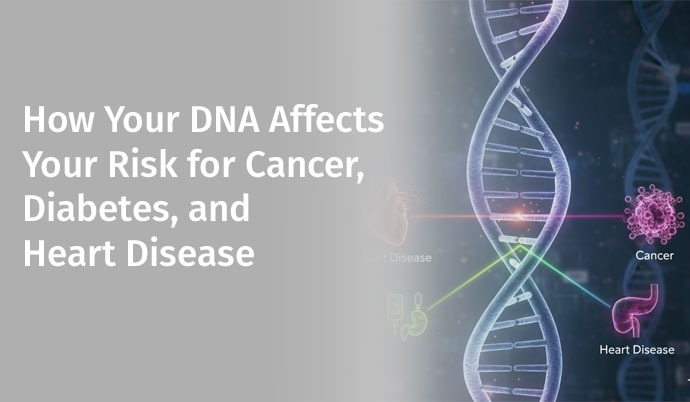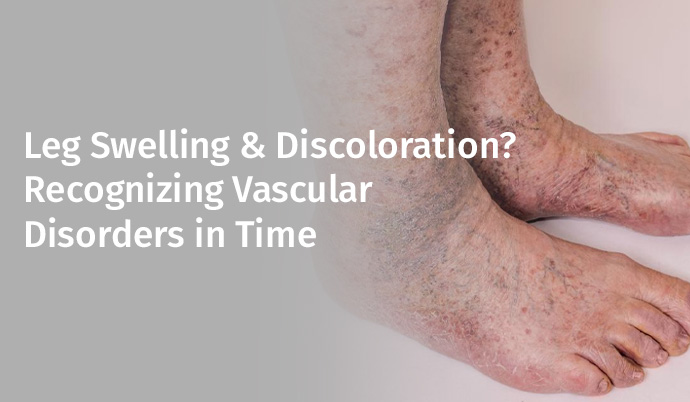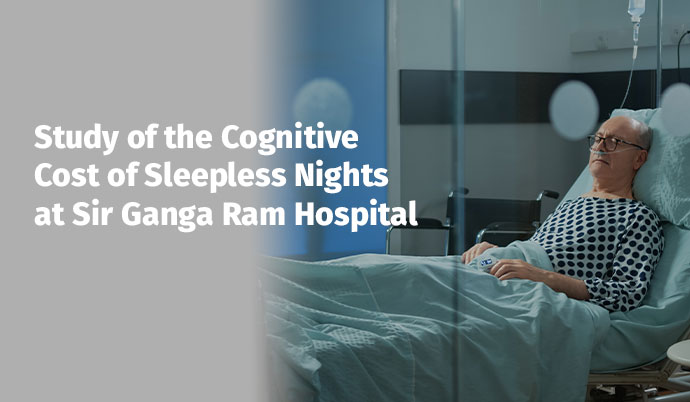
So don't panic yet, a genetic disease risk does not mean you are doomed. It simply implies that you have a couple of extra cards in your hands, and this knowledge of how to use them can make a whole difference.
What is DNA and Why Does It Matter?
And how does all this genetic disease risk thing work? Well, you can think of your genes as a recipe book. In most cases, everything goes according to the right directions and your body runs as it must. Occasionally, however, typos in the recipe occur, matters of what scientists call mutations or genetic variants. These have the capacity of interfering with the way your body controls crucial systems such as the levels of blood sugar, cholesterol or cell growth. A few of these mutations are inheritable, that is, they are transmitted by your parents, but others are acquired because of the way you live, or what you may be exposed to in the environment, or even random mistakes of the cell as the years pass. Whichever the case, the genetic variations may shift the pendulum in favour of increased genetic disease risk. Here we are going to take it disease by disease!
DNA and Cancer Risk: What You Should Know
Cancer begins as cells multiply out of control, and some of that disorder may be inherited genetic shifts. An example is the famous connection between two genes, BRCA1 and BRCA2 and breast and ovarian cancer. “According to Genetic Counseling, Testing, and Management of HBOC in India, HBOC screening and risk management are well recognized in India, but precise Indian data on lifetime penetration for BRCA1/2 carriers are not yet conclusive. Global studies (e.g. Kuchenbaecker et al.) estimate up to ~72% lifetime breast cancer risk for BRCA1 carriers by age 80. ”
However, it is not only BRCA; there are other forces at play. You may be at risk of getting colorectal, pancreatic, and prostate cancers due to a mutation in TP53, MLH1, among others. Although lifestyle choices such as smoking, diet and fitness determine the risk of getting cancer, your genes have the potential to silently increase or decrease the genetic disease risk without you noticing-unless you are tested. In case your family has a history of numerous cancer cases, particularly at young ages, it may be a good idea to discuss with your doctor the possibility of DNA testing for cancer, genetic disease risk assessment and screening plans.
Key Insight: While lifestyle factors (smoking, diet, exercise) matter, genetic predisposition can amplify cancer risk.
If your family has a history of cancers at young ages, consult your doctor about DNA testing for cancer and genetic disease risk screening.
Diabetes and DNA: Is It All in the Genes?
Type 2 diabetes is not always all risk and the blame thrown on diet, as genetics play a powerful part. Indeed, the presence of your parent or parents with type 2 diabetes can increase your chance of getting this condition by two times. Genes influence how insulin is formed and responded to by your body and the storage of glucose. Some of the populations, such as South Asians, native Americans and Africans, have a genetic disease risk of diabetes. There are more than 100 identified variants of genes linked with type 2 diabetes; one example is a major risk gene, TCF7L2, that influences insulin secretion.
But here is the good news: genetics may load the gun, but it is the lifestyle that shoots most of the time. Even severe genetic disease risk may be balanced by regular physical activity, a healthy diet and maintenance of the right weight. The highly genetically predisposed individuals lead a life free of diabetes because of staying healthy and eating smart in many instances.
Key Insight: While lifestyle factors (smoking, diet, exercise) matter, genetic predisposition can amplify cancer risk.
If your family has a history of cancers at young ages, consult your doctor about DNA testing for cancer and genetic disease risk screening.
Cardiovascular Disease and Family History
Acute Cardiovascular diseases, such as heart attacks or strokes, are highly dependent on the genes. Did your relatives die of heart disease, have high blood pressure, or have high cholesterol? Odds are your genes have dealt you a deck with a few more bad cards. A familiar inherited disorder is familial hypercholesterolemia (FH), in which the person is born with an inherited tendency towards very harmful, elevated levels of LDL cholesterol. When left untreated, it may deprive one of a heart attack at the age of 40. It occurs in 1 out of 250 individuals, but most of them are not aware, and this is too late. Other genes besides FH determine the way your body handles fats, reacts to inflammation, or deals with stress hormones, which can affect your cardiovascular health. However, much of the genetic disease risk can be overriden, as with diabetes, by your lifestyle choices such as diet, smoking, stress and exercise. A powerful tool in identifying these risks early is DNA testing for health, which provides you with a proactive advantage.
Heart attacks and strokes are often linked to family genetics.
If left unchecked, these risks may lead to heart attacks as early as age 40.
DNA testing for heart disease risk can identify problems early, giving you a chance to prevent or delay serious outcomes.
How to Reduce Genetic Disease Risks
Absolutely! Your genes do not form the total line. This is the way you can take charge:
Genomics is the Future, and it is Hopeful
We are in an era in which science can open up our body cells and our future, biologically speaking. And it is not scary, this is empowering. By learning about your DNA through DNA testing for health, you empower yourself with information that allows you to seize control and make wiser health decisions as well as screen problems before they become serious. So, you either have a history of heart attacks, a diabetic grandparent, or a general interest in the way your own biology works. Remember: your DNA may prime the well, but it remains up to you to tell the tale.
The future of personalised medicine is no longer a dream taking shape around it, at Sir Ganga Ram Hospital. Our Department of Genetics and Molecular Medicine is on the edge of combining modern genomic diagnostics and implementing them in daily clinical practice. The department can provide DNA testing for cancer, DNA testing for health, and genetic disease risk screening for hereditary cancers, precision-based risk assessment of heart disease and diabetes, and offer patients powerful information about their DNA. In the course of dealing with a complicated family history or preventive advice, the professionals of Sir Ganga Ram Hospital facilitate the design of a health map that is as distinctive as the genetic code. Based on the fact that here, it is not only about treatment, but it is about transformation. Hence, to experience this life-altering precision care, book an appointment at Sir Ganga Ram Hospital today.
FAQs on DNA and Disease Risk
Q: Can DNA testing predict my chances of getting cancer, diabetes, or heart disease?
A: DNA testing doesn't guarantee outcomes, but it highlights your risk probability so you can take preventive measures early.
Q: Is genetic risk stronger than lifestyle risk?
A: Lifestyle often has a greater immediate impact, but when combined with genetic predisposition, risks can multiply.
Q: Can lifestyle changes override genetic risks?
A: Yes. Healthy habits like diet, exercise, and stress control can significantly reduce even high genetic risks.
Q: Who should consider DNA testing?
A: People with a family history of chronic diseases, or those wanting to take a proactive approach to health.




